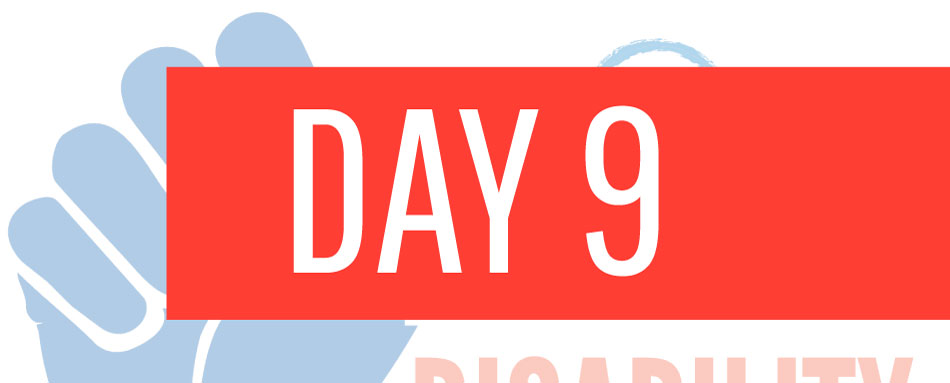
According to the Bureau of Labor Statistics, in 2023, only 23% of people with disabilities in the United States were employed compared to 66% of people without disabilities. Although this is the highest employment rate ever recorded for people with disabilities in America, a significant gap remains. Factors contributing to lower employment rates for disabled people include the common misconception that people with disabilities cannot or do not want to work. This is not the case for many people with disabilities. Often a person with a disability can perform a job as well as anyone else, but they simply need a job accommodation to ensure equal opportunity.
Job accommodations are modifications to a work environment or job process which allow an individual with a disability to apply for a job, perform a job, and enjoy equal access to benefits available to other individuals in their workplace. The Americans with Disabilities Act (ADA), passed in 1990, made it unlawful for most employers in the United States to discriminate against people with disabilities. The Michigan Persons with Disabilities Civil Rights Act of 1976 bans disability discrimination for all employers in the State of Michigan.
Employees are not required to disclose their disability to an employer, except to request job accommodations. An employee can choose to tell their employer about a disability and seek an accommodation at any time; they do not have to do so during the interview process. However, an employee is not covered by legal protections until they disclose a disability to their employer. An employee with a disability may choose to utilize Human Resources to assist with the accommodations process and help with issues of privacy.
Federal and state laws mandate that employers provide reasonable accommodation(s), which allow a qualified person with a disability to perform the essential duties of the job they have or are seeking. A reasonable accommodation may require purchasing specific software or equipment, but often it is as simple as rearranging a few things in the work environment or turning on basic accessibility features that are already included in existing software. According to the Job Accommodation Network (JAN), 56% of all job accommodations cost employers nothing, and the majority of other accommodations only require a “one-time cost,” with a median of $300.
Unfortunately, some employers fail to adhere to the law. To avoid a job accommodation, an employer might discriminate against a disabled person by not hiring them in the first place. An employer who wants to deny an existing employee a reasonable accommodation might even create false, unrelated reasons to terminate the employee. Both of these scenarios are against the law. Often people with disabilities end up having to advocate for themselves in employment situations that can be taxing, purposefully confusing, and are not guaranteed to end in the employee’s favor. The Job Accommodation Network (JAN) is a free resource available to help employees and employers find successful accommodations. Job accommodations help employers build a diverse workforce, in which individuals with different life experiences can contribute unique perspectives to solve problems and help organizations succeed. People with disabilities bring innovation and creativity to the table. When employers offer support and accommodations to employees, they can develop loyalty, increase morale, and attract a skilled workforce.
![[Image description: Overhead view of a diverse group of eight coworkers sitting around a wooden table in a business meeting, with each person using different tools and technologies to meet their needs. Two coworkers are shaking hands.
Attribution: fauxels, Pexels (2019).]](https://unitedforscmi.org/wp-content/uploads/2022/08/dec9-1024x683.jpg)
[Image description: Overhead view of a diverse group of eight coworkers sitting around a wooden table in a business meeting, with each person using different tools and technologies to meet their needs. Two coworkers are shaking hands. Attribution: fauxels, Pexels (2019).]

Read
- Áine Kelly-Costello, Rooted in Rights – Accessible Online Job Recruitment Must Be a Priority, Now and Always
- Andrew Pulrang, Forbes – People with Disabilities Want to Work – But It’s Complicated
- Dr. Bunny McFadden, Rooted in Rights – Busting Barriers: ADHD and ADA Accommodations at Work
- Kim Samuel, USA Today – Remote Jobs Gave People With Disabilities More Opportunities. In-Office Mandates Take Them Away.

Watch
- Tiffany Yu, The Way We Work TED Series – How to Help Employees with Disabilities Thrive (5:08, includes captions and transcript)
- National Disability Rights Network – Employment Accommodations Explained (4:00, includes captions and transcript)
- Rocky Mountain ADA Center – How & When to Disclose My Disability Under the ADA (2:37, includes captions and transcript)

Listen
- Carolyn Kiel, Beyond 6 Seconds Podcast – Episode 204: How to Support Employees With Invisible Disabilities – With Jenn Grindeland (26:07, includes transcript)
- Down to the Struts Podcast – Access and Inclusion in the Workplace (43:12, includes transcript)
Discussion
- What are some of the benefits of hiring a person with a disability?
- Why do you think the employment rates of people with disabilities are so low?
- Does your organization have a policy in place for employees to disclose a disability and request accommodations? If so, do you know the policy and when it was last reviewed? If not, how can you help get a policy in place?
